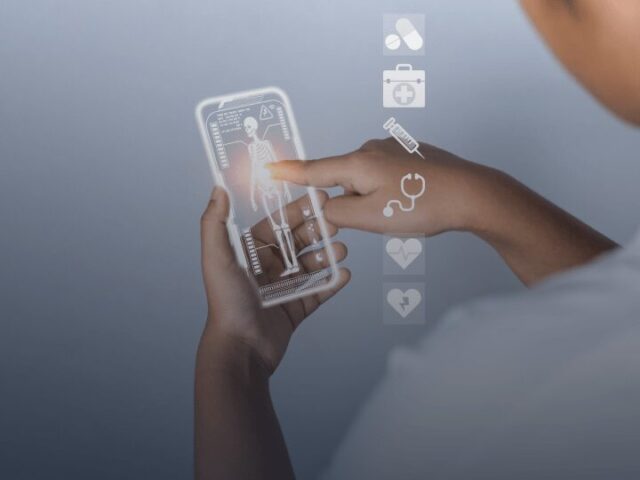
In today’s fast-paced world, continuous education is essential for medical professionals to stay updated with the latest advancements in healthcare and provide optimal patient care. Online learning programs and Learning Management Systems (LMS) emerged as a convenient and effective way for medical practices to ensure ongoing education and training of their employees. In this post, we will talk about the best practices and key strategies for successfully managing online learning programs for healthcare professionals.
Needs Assessment and Goal Setting
Before launching Learning Management Systems for healthcare professionals, it is crucial to conduct a comprehensive needs assessment. Identify specific areas where your staff requires training and improvement. Collaborate with third-party medical experts and your employees to ensure that the training program addresses real-life challenges and skill gaps. Set clear goals and objectives for the program, for example, improving patient-doctor communication or enhancing clinical skills. Ensure that your goals align with the broader objective of your medical practice.
Choosing the Right LMS

Selecting from the variety of LMS systems for healthcare can be difficult for newcomers, but it is a key decision in the success of your training program. Consider such factors as content types available, customization options, assessment tools, reporting capabilities, and scalability. You can choose from popular options that can be easily adapted into a platform for medical professionals or look for unique healthcare LMS.
After you compose a shortlist, evaluate critical features, like content management capabilities, mobile compatibility, communication features, and overall user experience. Don’t forget to consider ongoing technical support and training offered by the provider.
Finally, before committing to specific healthcare Learning Management Systems, consider conducting a small pilot test with several users. This will allow you to accurately assess how the platform aligns with your medical practice objectives and needs.
Curriculum Development and Content Creation
Creating a well-structured and engaging curriculum is essential for any successful training program for medical professionals. If you can, involve a diverse team of medical experts, professional educators, and instructional designers at this stage. Their combined expertise should ensure that the curriculum aligns with the practice’s goals, addresses skill gaps identified earlier, and provides comprehensive learning experiences.
Clearly defined and measurable learning objectives, diverse content formats, interactive elements, and real-life examples are crucial for a successful curriculum in LMS systems for healthcare. Ongoing content updates and regular evaluation of modules’ effectiveness will ensure that learners always receive current and relevant information.
Engage and Motivate Learners

Healthcare Learning Management Systems highly benefit from engaged and motivated learners. Gamification elements, such as badges, certificates, leaderboards, points, and milestones, add an element of competition and reward to the whole learning experience. Another great way to keep students engaged is by providing examples and case studies that directly relate to medical practice.
Showing how acquired knowledge can be effectively applied in real-life scenarios significantly increases learners’ motivation to engage with course content. Interactive activities, including various group projects, virtual simulations, and problem-solving challenges, also increase the level of engagement and lead to better knowledge retention.
Accessibility and Flexibility
For healthcare Learning Management Systems, accessibility and flexibility are extremely important. Medical professionals often deal with demanding schedules, so it is essential to ensure that the training program can be accessed conveniently and tailored to meet diverse learning preferences. Responsive design ensures that students can access learning content easily from devices with different screen sizes and resolutions.
For facilitating mobile learning, course content should also be designed with other users in mind, for example, using easily readable fonts or appropriately sized images. Another great feature of self-paced learning is offline access. Medical professionals who want to access training program materials during their commute can download them before and access them within LMS at their convenience.
Interactive Discussion and Networking

Fostering a sense of community and collaboration is essential for any online training program, especially in the field of healthcare. Discussion and interactive features not only enhance the learning experience but also create a supportive environment where medical professionals can share insights, exchange knowledge, ask questions, and collaborate.
Incorporation of discussion forums, live webinars, virtual meetups, social learning platforms, and peer feedback functions into your LMS will help in the creation of a learners’ community with a culture of collaboration, ongoing learning, and continuous improvement.
Regular Assessment and Feedback
Regular assessments and advanced feedback mechanisms are incredibly important for any healthcare LMS. It is crucial to implement a wider variety of assessment types to gauge learners’ comprehension and application of core subjects, such as quizzes, verbal exams, real-world case studies, practical assignments, and reflective self-assessments. Timely and thorough feedback is essential for student improvement and engagement; it needs to be constructive, specific, and individualized.
Advanced assessment and feedback mechanisms not only help to create dynamic learning environments and foster a culture of continuous skills development but also provide LMS administrators and educators with invaluable insights for improving the platform and tailoring course content.
Continual Improvement and Data Analysis

In this highly competitive era of various e-learning solutions, the key to successful online training programs lies in the ability to adapt and improve over time. Data analytics play a central role in the process of providing valuable insights for data-driven decision-making and enhancements. To fully harness the power of advanced data analysis tools, identify key metrics and KPIs that reflect the healthcare training program’s success.
After that, you can collect necessary information by leveraging analytics tools provided by your LMS, analyzing assessment data, conducting learners’ behavior analysis, and researching students’ and teachers’ feedback. Commitment to data-driven enhancements not only elevates user experience but also positions your medical practice as a forward-thinking organization that delivers top-notch education to its employees, contributing to the highest standards of patient care and professional development.
Final Thoughts
Managing online training programs for medical practices is a challenging task. It requires thorough planning, attention to detail, continuous improvement, and commitment to best practices. As a result, medical practices can establish a dynamic and effective learning environment that empowers their staff to stay current, enhance their skills, and provide the highest level of patient care.









